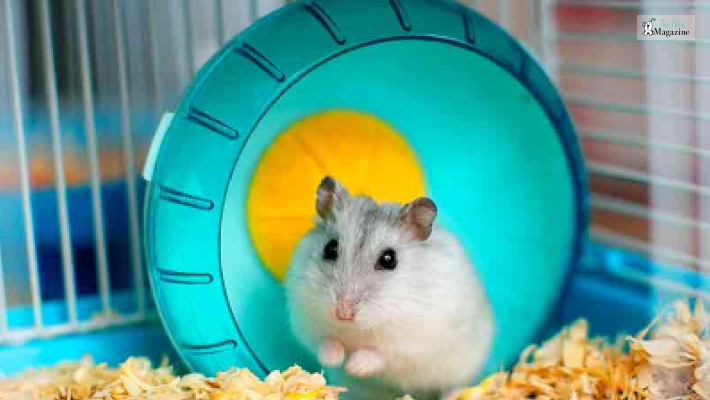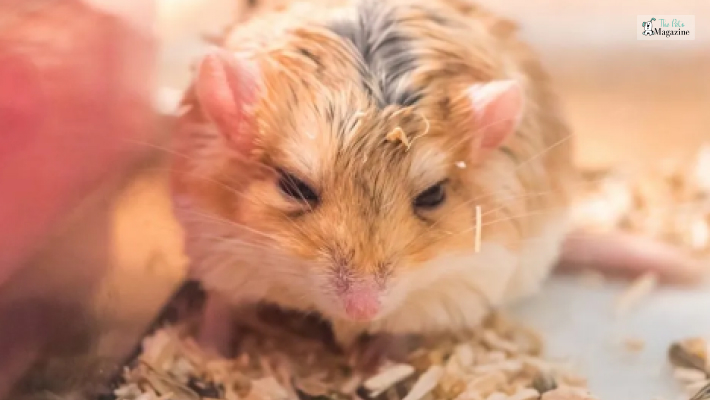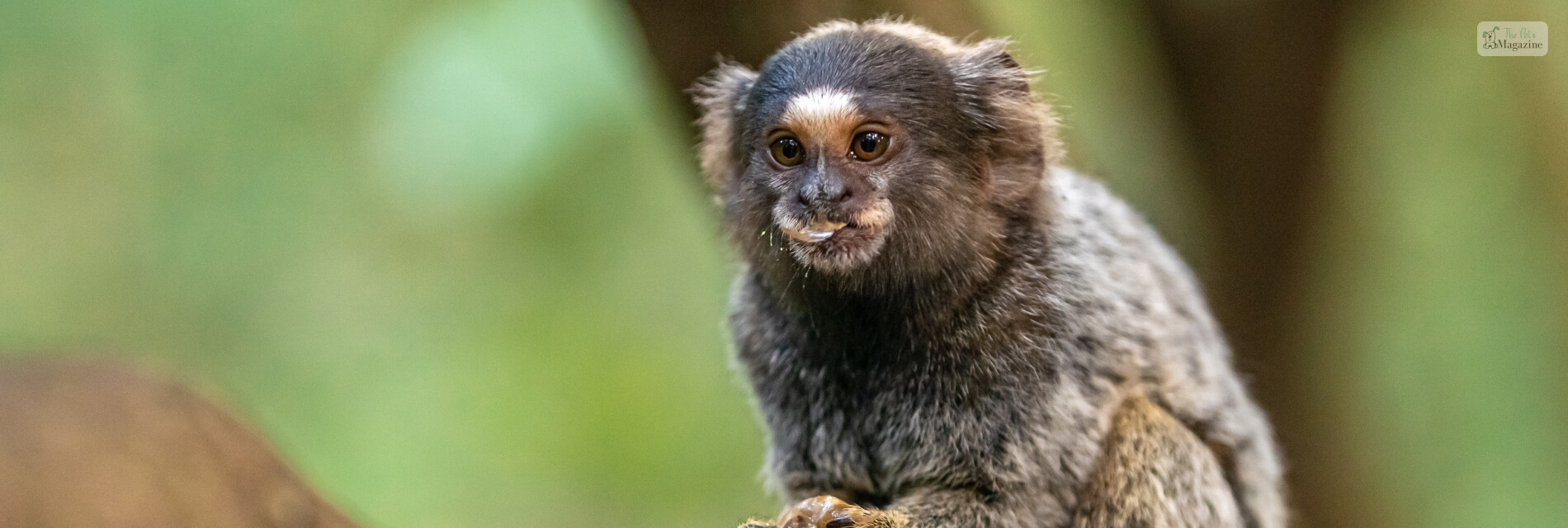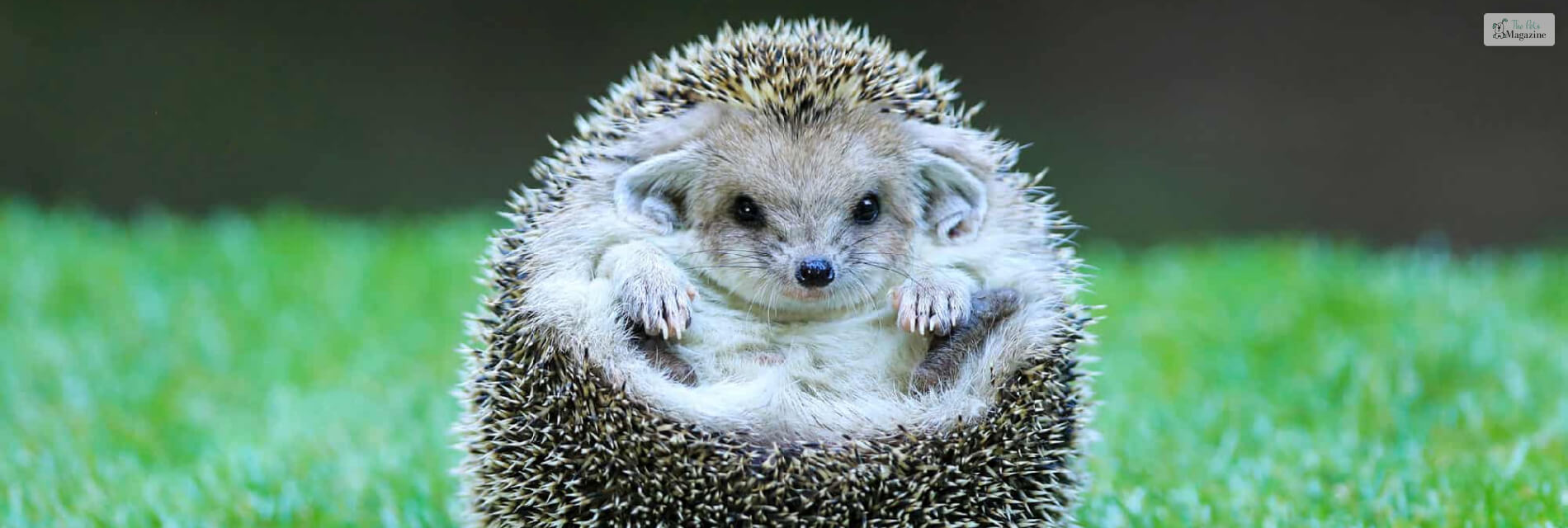Everything You Need To Know About How Long Do Hamsters Live


Hamsters are small, furry, and adorable creatures that make great pets. They are generally low-maintenance and easy to care for, which makes them a popular choice among pet owners. However, if you are planning on getting a Hamster as a pet, then you should know that hamsters have a relatively short lifespan compared to other pets, and the average lifespan of hamster can vary depending on the species.
So, How long do Hamsters live?

As a prospective or first-time hamster owner, one of the most common questions you might have is: how long do hamsters live? The answer to this question is not so straightforward, as the lifespan of a hamster can be affected by various factors.
In this article, I will discuss the average lifespan of different hamster species, the factors that affect hamster lifespan, and tips for ensuring a long and healthy life for your furry friend.
How many years do hamsters live?
There are several different hamster species, and each has a different average lifespan. For instance, how long do dwarf hamsters live is different from the lifespan of wild hamsters. Here are the average lifespans of some of the most common hamster species:
- Syrian hamsters: 2-3 years
- Dwarf hamsters (Roborovski, Campbell’s, and Winter White): 1.5-2 years
- Chinese hamsters: 2-3 years
- Teddy bear hamsters: 2-3 years
It’s important to note that these are just average lifespans, and your hamster may live longer or shorter than these estimates. An interesting fact about hamsters is that wild hamsters live longer than pet hamsters or hamsters in captivity. Do you want to know how long do hamsters live in the wild?
The wild European hamster (Scientific name: Cricetus cricetus) can live for up to 8 years. On the other hand, pet dwarf hamsters live for 2-3 years.
Factors that affect the lifespan of hamsters

The lifespan of a hamster can be affected by various factors, including genetics, diet, environment, and overall health. For example, some hamster species are prone to certain health issues that can affect their lifespan. Additionally, a hamster’s diet and environment can play a significant role in their overall health and lifespan.
As a hamster owner, it’s important to understand these factors and take steps to ensure your hamster lives a long and healthy life. These factors that affect how long do hamsters live have been explained in detail below:
Diet and Exercise
A healthy diet and regular exercise are key. Feed your hamster a balanced, nutritious diet with plenty of protein and limited treats. Keep their exercise wheel clean and give them opportunities to play outside their cage daily. Exercise provides mental and physical stimulation to keep them happy and active.
Spacious and Stimulating Environment
House your hamster in a large cage with multiple levels connected by ramps or tubes. Include toys that encourage foraging and puzzle-solving. An enriched environment prevents boredom and gives them opportunities to dig, climb, and play.
Clean and Hygienic Living Conditions
Perform regular cage cleanings, about twice a week. Replace soiled bedding and wipe down tubes and toys. Hamsters are very clean animals and can get stressed in a dirty, smelly environment. Clean conditions also reduce health issues that could shorten their lifespan.
Annual Checkups
Take your hamster for annual checkups by an exotic animal vet. Early detection of any health issues will allow for prompt treatment. Watch for signs of illness in between visits like lethargy, loss of appetite, diarrhea or respiratory problems. With early diagnosis and care, many hamster diseases can be managed to extend lifespan.
By providing an ideal diet, opportunities for exercise, mental stimulation, clean living conditions and routine vet care, you’ll be giving your little furry friend the best chance at a long, happy life. With your love and attention, they’ll be by your side for years to come!
Tips for ensuring a long and healthy life for your hamster

Now that you know the average lifespan of different hamster species and the factors that affect how long do a hamster live, here are some tips for ensuring a long and healthy life for your furry pet:
Provide a healthy diet
Feed your hamster a balanced diet of quality hamster pellets along with other healthy snacks like vegetables, fruits, and the occasional treat. Hamster pellets should make up about 75-80% of their diet. Offer fresh veggies like carrots, broccoli, and spinach 2-3 times a week. Limit fruits to 1-2 small pieces a week since they are high in sugar.
Only give commercial treats in moderation, 1-2 times a week. Make sure your hamster always has access to fresh, clean water. Change the water in their bottle daily and wash the bottle weekly with hot, soapy water.
House your hamster properly
Hamsters need a spacious cage with plenty of bedding material like aspen shavings. Provide multiple hiding spots, tunnels, wheels, and other toys to keep your hamster active and entertained. Place the cage in a spot away from drafts, direct sunlight, and noise.
Perform regular maintenance like spot-cleaning the cage 1-2 times a week and changing about 1/3 of the bedding. Completely clean out and disinfect the cage at least once a month or if there are any foul odors.
Handle your hamster daily
Spend time with your hamster daily by handling and interacting with them gently and patiently. This helps socialize your hamster and strengthens the bond between you. Only handle your hamster after they have woken up for the evening since hamsters are nocturnal.
Be very gentle and avoid sudden movements that may startle your hamster. Never squeeze or drop your hamster. Supervise small children and teach them proper handling techniques before allowing them to handle the hamster.
Provide routine veterinary care
Take your hamster for regular vet checkups to monitor for any health issues. Get your hamster the necessary vaccinations and deworming. Watch for any signs of illness or injury in between visits and take your hamster to a vet if you notice anything abnormal. Early diagnosis and treatment of medical issues will help extend your hamster’s lifespan.
With the proper diet, housing, handling, and medical care, hamsters can live 2 to 3 years on average, with some living up to 5 years. By providing the best lifelong care for your hamster, you’ll have a happy and long-lasting relationship with your little furry friend.
Common health issues in hamsters and how to prevent them

Knowing the common health issues in hamsters and providing preventative care also goes a long way towards extending your furry pet’s lifespan. Here are some common health problems that may affect how long do hamsters live:
Dental problems:
Hamsters’ teeth grow continuously, and if not worn down properly, can cause dental problems. Provide them with appropriate chew toys and make sure their diet includes hard foods that can help wear down their teeth.
Wet tail:
Wet tail is a bacterial infection that can be fatal if not treated promptly. Keep your hamster’s cage clean and avoid overcrowding to prevent the spread of bacteria.
Respiratory infections:
Hamsters are prone to respiratory infections, especially if kept in a dusty or dirty environment. Make sure their cage is cleaned regularly, and avoid using dusty bedding or substrate.
Signs of an aging hamster and how to provide proper care
As your hamster ages, there are a few signs to watch out for that may indicate it is nearing the end of its life. While hamsters typically live 2 to 3 years, some may live shorter or longer lives depending on their environment, diet, and genetics. Be on the alert for the following indicators your hamster may be getting older.

Lethargy and decreased activity
If your hamster is sleeping more, exercising less in its wheel, and seems less interested in playing or interacting with you, it could be a sign of aging or an underlying health issue. Older hamsters tend to slow down and rest more. However, if the decrease in activity seems sudden or severe, have your vet examine your hamster.
Loss of appetite or thirst
Keep an eye on how much your hamster is eating and drinking. A decreased appetite or thirst can lead to dehydration or malnutrition in hamsters. Measure out your hamster’s normal food amount and monitor if it’s finishing all its food. Check how much water is in the bottle to see if it’s drinking the usual amount. Changes in appetite or thirst should be addressed by a vet.
Difficulty grooming
Hamsters are very clean animals and groom themselves regularly. If your hamster seems to be struggling to groom itself or is developing matted, unkempt fur, it may point to aging or an illness. Gently brush and bathe your hamster to keep its coat clean, and take it to the vet for an exam.
Labored breathing
Watch for any signs of labored, rapid, or shallow breathing in your hamster, especially if it continues when your hamster is at rest. Difficulty breathing can be a medical emergency in hamsters. Seek vet care immediately if you notice any abnormal breathing.
While there’s no way to stop aging in hamsters, providing the best possible care, nutrition, environment, and veterinary care can help keep your hamster healthy and comfortable for as long as possible during its lifetime. You can consider providing a a soft and comfortable bed to help ease joint pain and offer softer food is they are showing symptoms of dental problems.
Paying close attention to your hamster’s normal activity and behaviors will help you quickly notice any changes that could signal a medical issue.
How to create a comfortable and stimulating environment for your hamster

Hamsters are curious and intelligent animals that need stimulation to keep them happy and healthy and also affects how long do a hamster live.
Here are some tips for creating a comfortable and stimulating environment for your hamster.
- Provide a variety of toys and hiding places to keep them entertained
- Create a natural habitat by adding plants and other natural elements to their cage
- Rotate toys and change up their environment regularly to prevent boredom
- Bonding and socializing with your hamster
- Hamsters can be social animals and enjoy spending time with their owners. Here are some tips for bonding and socializing with your hamster:
- Spend time with them daily, talking to them and offering treats
- Offer your hand for them to sniff and climb on
- Allow them to explore outside of their cage under close supervision
FAQ: Answering Common Questions on Hamster Lifespans
You probably have a lot of questions about your hamster’s lifespan and how to keep them healthy. Here are some of the most frequently asked questions and answers:
Q: How long do hamsters live?
A: The average life span of a hamster is 2 to 3 years. Some hamsters have lived up to 5 years with excellent care. The life span depends on factors like breed, diet, environment, and health. Generally, Syrian hamsters live longer than dwarf hamsters.
Q: Do hamsters need exercise?
A: Yes, exercise is important for a hamster to live a long and healthy life. Hamsters should have time outside their cage daily to run and play. An exercise ball or wheel in their cage also provides opportunities for your hamster to exercise. Lack of exercise can lead to obesity and health issues in hamsters.
Q: What should I feed my hamster?
A: A balanced diet with plenty of protein and nutrients is key. Good options for hamsters include
- Commercial hamster pellets provide nutritional balance. Give 1-2 tablespoons per day.
- Timothy hay is essential for digestion and bedding. Provide unlimited amounts.
- Fresh fruits and vegetables such as broccoli, carrots, and cucumber. Give in moderation, 1-2 teaspoons 2-3 times a week.
- Occasional treats such as nuts, seeds, and cheese. Only give in small amounts, 1-2 times a week.
- Replace water daily and always have it available.
- Avoid too many sugary foods, high-fat seeds, and citrus fruits which can cause diarrhea.
Q: Should I handle and play with my hamster daily?
A: Yes, daily interaction and handling is important for a hamster’s well-being and to help socialize them to human contact. Gently handle and play with your hamster for at least 30 minutes a day. Be patient and move slowly, allowing them to come to you. Provide toys to play with together like tunnels, balls, and chewing toys. With regular interaction from an early age, hamsters can become quite tame and socialized.
Cherish the time with your furry friend
In conclusion, the lifespan of a hamster can vary depending on various factors, but with proper care, you can ensure your furry friend lives a long and healthy life. By providing them with a balanced diet, regular exercise, a clean and comfortable environment, and plenty of stimulation, you can create a happy and fulfilling life for your hamster. Cherish the time you have with your furry friend and make the most of every moment together.
Have you read these?








Leave A Comment